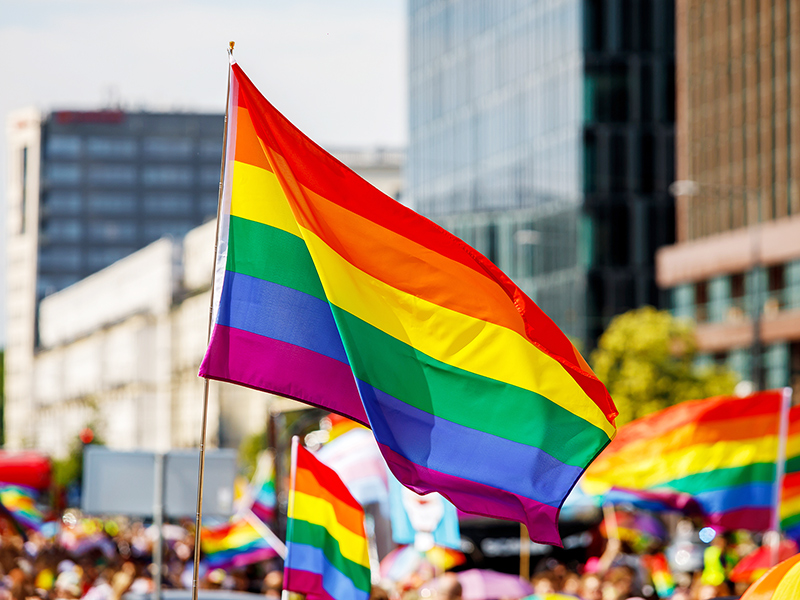Introduction
In 2021, BSR worked with Zuellig Pharma, a healthcare solutions company increasing accessibility to healthcare in Asia Pacific (APAC), to conduct a Diversity, Equity, and Inclusion (DEI) Assessment. Using BSR's methodology, the assessment gauged the effectiveness of Zuellig Pharma's DEI efforts and determined its level of maturity and ability to continuously improve. This included an assessment of the company's DEI-related policies and procedures, internal DEI governance, and the existing level of external reporting on various DEI topics. The assessment revealed that Zuellig Pharma was in the early stages of its DEI maturity journey. BSR provided valuable recommendations for Zuellig Pharma to proactively address identified gaps and fortify its existing DEI initiatives. The strategic guidance helped Zuellig Pharma strengthen its DEI commitment and evolve its DEI program into a more robust and established framework.
Background
Zuellig Pharma is a healthcare solutions company covering 16 markets across Asia, with the mission of making healthcare more accessible to the communities it serves. The company provides distribution, digital and commercial services to support the growing healthcare needs in this region.
Zuellig Pharma's Sustainability Framework is built on four pillars. One of these is “Nurturing Talent,” which defines how the organization creates an inclusive and safe work environment that empowers employees to reach their full potential. This covers focus areas such as talent recruitment, development and retention, employee well-being, and DEI. Given the diverse cultural landscape within the region that its operations cover, there is a high level of diversity within the organization, leading to Zuellig Pharma identifying DEI as a material topic for the company.
The Challenge
Zuellig Pharma expressed a collective desire to operationalize and formalize its commitment to DEI to build upon its diverse environment and to comply with prevalent industry requirements and existing ad hoc DEI initiatives. Recognizing the pivotal role that DEI plays in the company's overall success, the senior leadership sought to enhance both internal and external DEI support across all offices in the APAC region, and the company prioritized fostering cross-cultural sharing and gaining insights into the varied interpretations of DEI across its different offices.
Prior to launching a comprehensive DEI program, which involves formalizing commitments at the highest levels and cultivating a DEI strategy and culture throughout the organization, Zuellig Pharma recognized the need to assess its existing internal DEI efforts. The company aimed to understand its current standing, identify best practices, and pinpoint opportunities for further engagement. Consequently, Zuellig Pharma enlisted the expertise of BSR to conduct a thorough DEI assessment.
BSR’s Response
The assessment’s objectives were to identify opportunities to integrate inclusive policies and practices across its business; understand the gaps, challenges, and opportunities by creating a diverse, equitable and inclusive workplace; improve stakeholder experience and engagement across Zuellig Pharma’s business; and identify opportunities for further engagement with a view to develop a DEI strategy via a clear roadmap. The intent of the findings from this assessment was to enable Zuellig Pharma to strengthen its commitment to DEI.
BSR's DEI Assessment methodology included a review and gap assessment of Zuellig Pharma’s internal policies and procedures, as well as a series of confidential discussions with the company's DEI taskforce (including senior management, which gave leadership buy-in for this exercise) on key DEI material topics, such as: LGBTIQ+ Allyship, Cross-Generational Exchange, Mental Health and Wellness, Race, Religion, Ethnicity, Cultural Awareness, Socioeconomic Empowerment, and Gender Equality.
An employment perceptions survey, deployed across 13 geographies/offices in the APAC region, gathered insights from employees across cohorts in the following geographies: Brunei Darussalam, Cambodia, China, Hong Kong, Indonesia, Korea, Macau, Malaysia, Myanmar, Philippines, Singapore, Taiwan, Thailand, and Vietnam.
The results of the employee perceptions survey (both qualitative and quantitative) offered in-depth insights and perspectives into the employee experience, including opportunities, challenges, and concerns. These insights and perspectives provided views around three key questions:
-
What are the key social issues that are important to you as an employee of Zuellig Pharma?
-
What is Zuellig Pharma doing well to foster DEI?
-
What activities could make the company more diverse, equitable, and inclusive?
Impact
The successful conclusion of the DEI assessment highlighted that Zuellig Pharma had a strong foundation for further developing its DEI program, and it helped the company understand the gaps and challenges. Through the DEI assessment, offices across 13 geographies were able to identify contextually and culturally specific priorities, and the internal regional assessment allowed teams from different countries to engage on similar goals related to DEI.
The DEI assessment established a baseline for Zuellig Pharma to not only identify best practices but also uncover opportunities for enhancing its commitment to fostering a diverse and inclusive workplace via the integration of inclusive policies and practices. With strong support and buy-in from senior leadership, Zuellig Pharma formed its DEI Core Committee, comprising six pillars and informed by the DEI assessment. This exercise was an important first step in informing Zuellig Pharma's subsequent DEI efforts in fostering a more inclusive workplace since it helped prioritize DEI topics that were important to its employees.
Building on the DEI assessment, Zuellig Pharma achieved several DEI milestones. It launched various initiatives informed by the priority areas from the DEI assessment: creating an inclusive environment for working mothers (addressing Gender Equality), bringing generations together to discuss ways to better work together and leverage each other’s strengths (Cross-Generational Exchange), normalizing talking about mental health issues at the workplace (Mental Health and Wellness), and conducting a survey to identify opportunities for further conversations to support the LGBTIQ+ community (Employee Engagement).
Key outcomes arising from the DEI assessment and the initiatives and improvements resulting from the assessment include:
-
More than 50 percent of Zuellig Pharma’s employee base and middle management positions are now occupied by women, and the company has made progress in increasing the representation of women in senior management roles over the years.
-
The average unadjusted gender pay gap at the company is 0.16 percent for equivalent roles and skill sets (in comparison, the global average is 20 percent).
-
100 percent of its employees has completed anti-discrimination and harassment training.
“BSR has been a steadfast partner of our Sustainability efforts, bringing to Zuellig Pharma the expertise and support to create meaningful impacts. In the field of DEI, our work with BSR sets us on the path of sustainable excellence, which can only be achieved through equal opportunity, cooperation, and a progressive mindset. With BSR we strive to foster a culture of continuous progress and a workplace where the success of our employees knows no bounds.”"
- Jean-Gaetan Guillemaud, VP, Corporate Affairs
Conclusion
Against a global backdrop where DEI approaches are increasingly used as a strategic tool to improve competitive advantage, elevate employee engagement, and foster a more supportive and inclusive workplace that values diversity, a similar trend is emerging in the APAC region. The growing interest in understanding and implementing DEI practices in APAC is underscored by the diverse maturity levels and ambitions of companies, coupled with varying perspectives on DEI across regions. Recognizing this diversity, there is no universal framework or 'one-size-fits-all' approach.
In this context, establishing an ambitious long-term vision and mission for DEI requires a strategic initial step. For companies embarking on their DEI journey, undertaking a DEI assessment becomes paramount. This first step allows organizations to comprehensively understand and evaluate their current internal DEI initiatives, while pinpointing opportunities for further engagement. In the case of Zuellig Pharma, the DEI assessment helped the company to recognize the diverse landscape of DEI perspectives and practices as the foundational step to establishing a baseline for its DEI roadmap.
Get in Touch
This case study was written by Kelly Scott and Jiajia Chen. Please direct comments or questions on working on DEI in the APAC region to the EIJ team.
Let’s talk about how BSR can help you to transform your business and achieve your sustainability goals.








